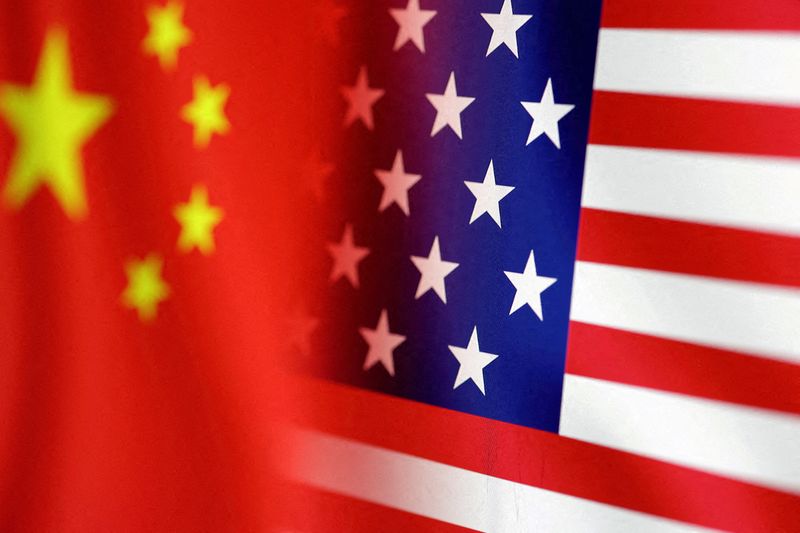BETA Technologies launches IPO of 25 million shares priced $27-$33
Investing.com -- Markets were reminded on Friday how sensitive sentiment remains to U.S.-China trade tensions after President Donald Trump said Washington would impose a fresh 100% tariff on Chinese imports from November 1, along with new export curbs on critical software.
Deutsche Bank macro strategist Henry Allen made several observations, starting from the fact that the aggressive market reaction was not surprising given how pivotal the May truce between Washington and Beijing was in calming recession fears earlier this year.
That agreement, reached on May 12, lowered tariff rates by a combined 115 basis points and marked a turning point in risk sentiment.
The S&P 500 jumped 3.26% that day and U.S. high-yield spreads tightened 38 basis points, while recession odds priced on prediction markets such as Polymarket fell sharply. With that backdrop, Allen said any sign of reversal would naturally spark a risk-off move, especially since Friday’s selloff was triggered by threats rather than enacted tariffs.
Second, the bank also warned that tariffs should not be treated as a one-off price shock. Instead, they are being introduced sequentially, adding a rolling inflationary impulse.
Tariffs on Canada and Mexico rose to 25% in March, a 10% global baseline followed in April, duties on EU and Japan climbed to 15% in August, Canada reached 35% the same month, copper faced a 50% tariff later in the summer and branded pharmaceuticals saw 100% tariffs from October.
With another 100% tariff on China threatened for November, Allen said the inflationary effects will continue filtering into 2026, shaping inflation expectations and pricing behaviour.
Third, Deutsche Bank strategist noted that policy has acted as an “endogenous variable” to markets this year, with selloffs prompting policymakers to adjust. The 90-day tariff extension in April following negative market reaction was cited as an example of how pressure in financial markets acts as a political brake.
For that reason, the bank suggests that while tariff threats may be used as leverage, it is still in no one’s interest to trigger a full recessionary shock.
